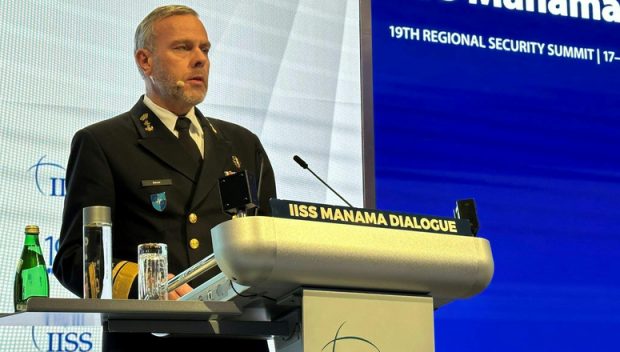Middle East – NATO partnership to deepen in 360-degree approach

Admiral Bauer stresses depening NATO’s partnership with MENA
BRUSSELS: The North Atlantic Treaty Organization (NATO)’s increased focus on the Indo-Pacific region, mainly Korea, Japan, Australia and New Zealand, does not diminish its interest in its southern neighborhood – particularly the Middle East, North Africa and the Sahel region.
“The South remains equally important in the context of NATO’s 360-degree approach to deterrence and defense,” a NATO official said at a briefing at the NATO headquarters in Brussels.
NATO has built partnerships with Middle Eastern countries under the Mediterranean Dialogue in 1994 and with Gulf countries under the Istanbul Cooperation Initiative (ICI) in 2004.
Last month at the Manama Dialogue in Bahrain, the Chair of the NATO Military Committee Admiral Rob Bauer said that “the MENA region has always been of strategic importance to NATO.”
“NATO Nations share many of the same challenges as the Nations in the region, such as those posed by extremist groups, terrorism or nuclear proliferation,” he said.
“However, they have different approaches to tackling these challenges. Therefore, through dialogue and cooperation we can learn best practices and improve the way we respond to these global threats,” he said.
Admiral Bauer added that NATO has “decades of cooperation to build on, through the frameworks of the Istanbul Cooperation Initiative and the Mediterranean dialogue.”
“Cooperation with Partners ranges from information exchange, military education and training to operating side by side in a NATO mission or operation,” he said.
“Military cooperation with Partners means that you have access to new ways of working and different threat perceptions, as well as potential new solutions. It strengthens defense and deterrence for all parties involved. With the security situation being as volatile as it is, NATO wants and needs to invest more time and energy in our partnerships around the world.”
The 360-degree approach was adopted amid growing concerns that today’s challenges are “more, faster, and everywhere.”
NATO is exploring a deeper engagement with Asia and the Indo-Pacific region and is deepening its partnerships with the Republic of Korea, Japan, Australia and New Zealand.
According to experts, emerging and disruptive technologies, including artificial intelligence, machine learning, and quantum technologies, are changing how NATO operates and how wars are fought.




















































